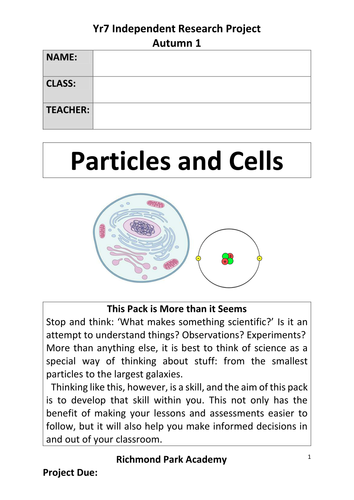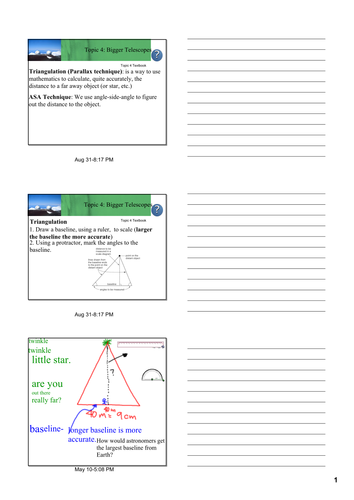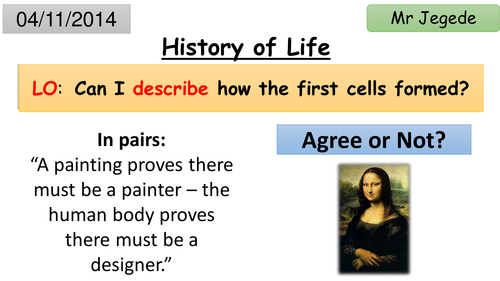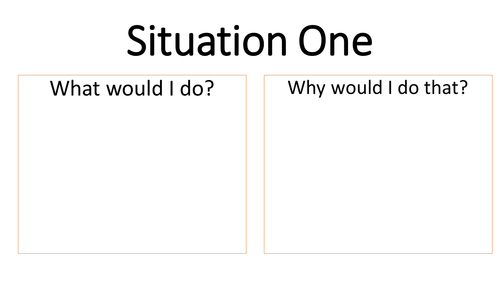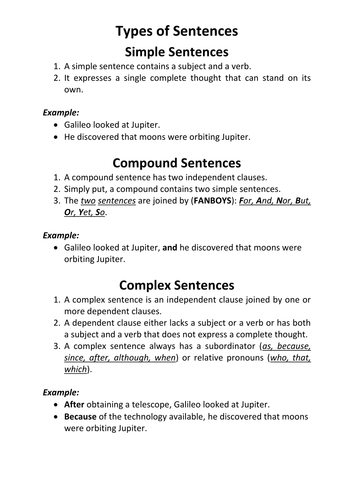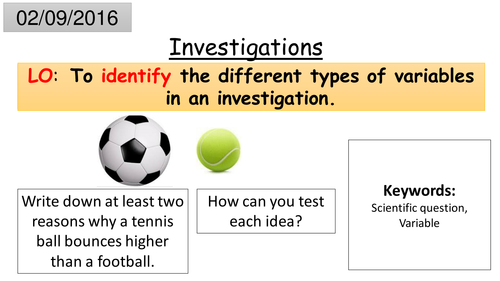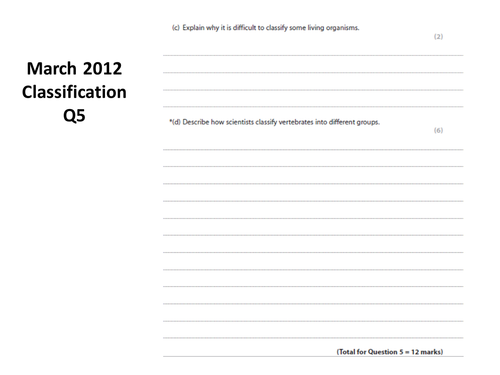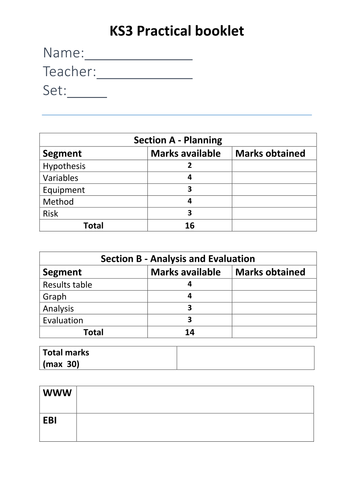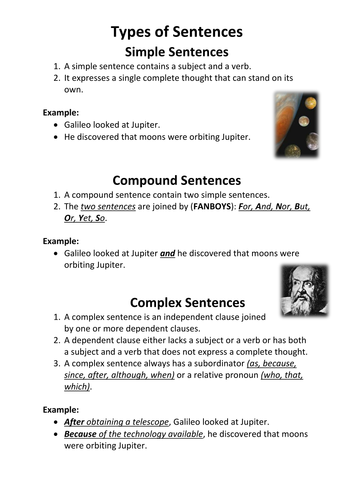243Uploads
111k+Views
55k+Downloads
All resources

Year 7 Homework Booklet (Particles and Cells)
This booklet was created to ensure consistency, and to develop scientific thinking skills. We have so much content to cover in lessons so this is a home resource which is designed to override homework. These activities include stop-motion activities, building 3D models and also scientific methods. Students should spend 6-8 hours in total on this booklet - a timetable is also incorporated in the booklet so that students can plan out which activities to attempt throughout the weeks before the due date.
As mentioned in the title, the two content units are Particles and Cells but at the end, there is also a scientific skills section which walks students through the scientific method. They will end up creating their own scientific questions, plan an investigation and write it out.
This booklet is 26 pages long but saves a lot of space by linking youtube videos where students will gain the necessary knowledge needed to complete the various sections (we all know students don't like reading a lot of information).
Also incorporated are GCSE questions that link to the KS3 content.
I hope you find this resource useful - Lagoondry

History of the Universe
A stand alone lesson. Outcomes:
State how spectroscopy works,
Describe evidence detailing he features of the universe,
Calculate distances using triangulation

History of Life
A stand alone lesson. Outcomes:
State what causes replication,
Describe the similarities and differences between RNA/DNA,
Explain how fat molecules allowed natural selection of RNA molecules.

Morals, ethics and mirror neurons
Pupils compare and contrast ethics and morality, Describe instances where morality is observed in other organisms, Evaluate moral dilemmas by discussing personal opinions.
Video on fairness in monkeys and discussion of natural selection on teamwork.

Science literacy - Sentence types + examples
A worksheet to be stuck in pupils books or tables. Ideal for extended writing tasks.

Scientific investigations (Introduction lesson 2/4)
Designed to be the second lessons for Year 7s (2/4).
Learning outcomes:
(*) List the scientific method into the correct order.
(*) Identify questions that can be answered using science.
(*) Identify the different variables in Brainiac experiments.
Students will learn the difference scientific variables (Control, Independent, Dependent) and how to spot them in written situations and videos.
Students also learn what makes a question scientific using Wolfgang Pauli's "not even wrong" quote.

KS3 Science Yr7 Biology Student response sheets
A collection of student feedback sheets based on exam style questions.
Best used when you have identified an area of weakness.
This should help make marking meaningful.
Topics include Cells, Body systems, Reproduction,

KS3 Science Yr7 Physics Student response sheets
A collection of student feedback sheets based on exam style questions.
Best used when you have identified an area of weakness.
This should help make marking meaningful.
Topics include Forces, Sound, Light, Space

KS3 Science Yr8 Chemistry Student response sheets
A collection of student feedback sheets based on exam style questions.
Best used when you have identified an area of weakness.
This should help make marking meaningful.
Topics include Periodic Table, Separation Techniques, Metals and acids, The Earth

KS3 Science Yr7 Chemistry Student response sheets
A collection of student feedback sheets based on exam style questions.
Best used when you have identified an area of weakness.
This should help make marking meaningful.
Topics include Particles, Elements and compounds, Reactions, Acids and alkalis

KS3 Science Yr8 Physics Student response sheets
A collection of student feedback sheets based on exam style questions.
Best used when you have identified an area of weakness.
This should help make marking meaningful.
Topics include Electricity and Magnetism, Energy, Motion and pressure,

KS3 Science Yr8 Biology Student response sheets
A collection of student feedback sheets based on exam style questions.
Best used when you have identified an area of weakness.
This should help make marking meaningful.
Topics include Health and Lifestyle, Ecosystem, Adaptation and Inheritance,

KS3 Chemistry controlled assessment Full Resources (Rates of Reaction)
This resources was modelled using the AQA KS4 ISA system.
This resource contains:
*the practical workbook - fully scaffold with hints and prompts.
*mark-scheme
*Technician sheet
*Lesson power-points (this should last a week ~4 lessons)
*This particular practical investigates effect of concentration on reaction rate

Science 101 (Introduction lesson 1/4)
Designed to be the first lessons for Year 7s (1/4).
Learning outcomes: (*) State what an observation is. (*) Describe the difference between observation and inference. (*) Use data to formulate an inference about fossil distribution.
Also included are sentence types (Simple, Compound, Complex) with scientific examples to build literacy skills in later lessons.

Science 101 (Introduction lesson 1/4)
Designed to be the first lessons for Year 7s (1/4).
Learning outcomes: (*) State what an observation is. (*) Describe the difference between observation and inference. (*) Use data to formulate an inference about fossil distribution.
Also included are sentence types (Simple, Compound, Complex) with scientific examples to build literacy skills in later lessons.

B1.2.3 Making an onion slide (Practical)
Kerboodle Activate (1)
Chapter 1: Cells
The Kerboodle worksheet are not included so as to be acting within the TES code of conduct.

B1.2.1 Animal cells
Kerboodle Activate (1)
Chapter 1: Cells
The Kerboodle worksheet are not included so as to be acting within the TES code of conduct.
Keywords: Nucleus, Cell membrane, Cytoplasm, Mitochondria, Organelle

B1.2.1 Plant cells
Kerboodle Activate (1)
Chapter 1: Cells
The Kerboodle worksheet are not included so as to be acting within the TES code of conduct.
Keywords: Chloroplast, Cell wall, Chloroplasts, Photosynthesis

B1.4 Movement of substances
Kerboodle Activate (1)
Chapter 1: Cells
The Kerboodle worksheet are not included so as to be acting within the TES code of conduct.
Keywords: Diffusion, Concentration, Osmosis

